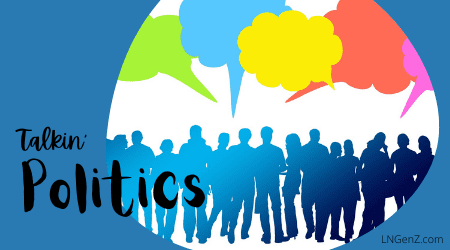-
October 2023
-
Issues of Today
- Free Speech Has Always Been a Game of Life or Death – Lesson
- Immigration Reform and DACA – Lesson
- Today’s Protesters Should Learn From MLK – Lesson
- Has the Media Made America More Divided? – Lesson
- Evil and The Political Divide – Lesson
- A Matter of Perspectives on the McCarthy Ouster – Lesson
- A Matter of Perspectives on the McCarthy Ouster – Quiz
- Biological Women Defend Female Athletes at Congress – Lesson
- Biological Women Defend Female Athletes at Congress – Quiz
- The Energy Behind the White House’s Hatred of Coal – Lesson
- The Energy Behind the White House’s Hatred of Coal – Quiz
-
Politics - How it Works
-
Political Parties
- Political Parties: Do We Really Need Them? – Lesson
- The Federalists: America’s First Political Party – Lesson
- The Federalists: America’s First Political Party – Quiz
- Democratic-Republican Party: Champions of Republicanism – Lesson
- The Democratic Party: Origins, Policies, and People – Lesson
- The Republican Party: The Grand Old Party – Lesson
-
Political Ideas and Ideologies
Political Parties: Do We Really Need Them? – Lesson
A look at today’s political parties and their history.
Political discussions tend to revolve around the ideas and policies of different political parties. Would it be possible, though, for the American political system to function without parties?
Party Politics and the Constitution
The US Constitution does not talk about political parties, nor does it assume that the federal government will be controlled by any one party. Article II, for example, describes the process of electing a president and vice president. Every presidential candidate in living memory has selected a “running mate” to become the vice president.
 Section 1 of Article II says that electors from each state will vote for two of all the candidates running for president. If a single candidate comes out ahead, he or she becomes president. The candidate with the next highest number of votes becomes vice president. If this original system were in use today, it is likely that every president would have a vice president from another party.
Section 1 of Article II says that electors from each state will vote for two of all the candidates running for president. If a single candidate comes out ahead, he or she becomes president. The candidate with the next highest number of votes becomes vice president. If this original system were in use today, it is likely that every president would have a vice president from another party.
Why do we have political parties at all, then? The idea is as old as politics itself. People who share common views form parties so that they can work together to better influence the creation of laws. Put simply, a group of people working together can hold more political power than any one individual.
The Origins of American Political Parties
Though the first American president, George Washington, did not belong to a political party, the first parties were formed while he was president. The federalists believed that the federal government should have most of the political power, while the anti-federalists thought that political power should be divided between the federal government and state governments.
The anti-federalists eventually won. Later, the party was renamed the Democratic-Republican Party.
In 1824, due to differences of opinions about the direction of the country, the Democratic-Republicans split into separate groups. One eventually adopted the name Democratic Party and the other main group called themselves the Whig Party. In the 1850s, some of the Whigs who opposed slavery, along with some former Democrats and a smaller party known as the “Free-Soilers,” formed the Republican Party. Abraham Lincoln was the Republican Party’s first president. Since then, American politics has been ruled by just two parties: the Democratic Party and the Republican Party.
The power struggle between the two major parties has had a bad effect on public opinion. Many Americans pick one side and don’t like those who support the other. Would politicians do better if they had no party loyalty to worry about and focused only upon doing the best thing for the people they were elected to represent?